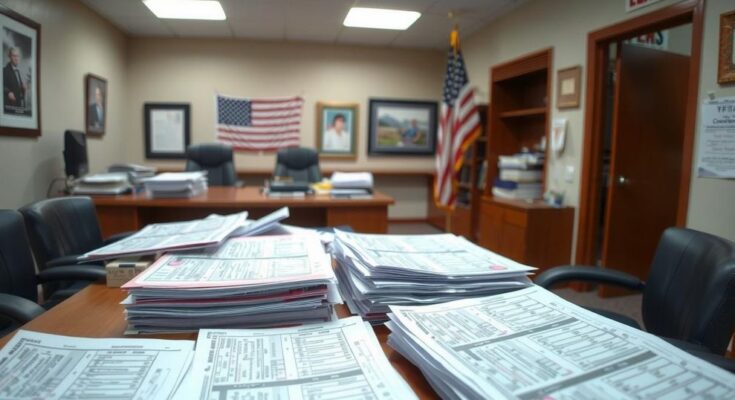In Pennsylvania, recent voter roll removals have sparked celebration among advocacy groups claiming credit, yet officials confirm these changes are routine legal processes. Deborah Austin from PA Fair Elections shared an email announcing removals, but elections directors emphasize that such activities adhere to established electoral laws. The tension between grassroots advocacy and official procedures illustrates the challenges of maintaining voter roll integrity amidst ongoing election scrutiny.
Recent activities surrounding Pennsylvania’s voter rolls indicate a surge in removals attributed to both routine maintenance and advocacy from election integrity groups. Activists, including members from PA Fair Elections, claim credit for the removal of nearly 12,000 out-of-state registrants, linking these results to their prior efforts against perceived electoral discrepancies. However, county officials assert that these removals stem from mandated post-election processes, as defined by state and federal regulations. The state’s election officials emphasize that inactive voters can only be purged following specific criteria, regardless of external influences.
Deborah Austin, an active member of PA Fair Elections, received a communication celebrating these recent voter roll updates, which she shared with local news. However, election authorities clarify that these removals have been part of a systematic approach dictated by law, occurring after each federal election cycle. Jim Allen, Delaware County’s elections director, indicated, “I’m glad they consider us restoring their confidence, but at the same time, we never did anything to take away from their confidence.” This statement reflects the officials’ position that their actions remain compliant with legal standards rather than influenced by external advocacy.
The maintenance of voter registration lists is primarily governed by both state and the National Voter Registration Act. According to election guidelines, voters who have not participated in the electoral process for two consecutive federal elections are subject to removal. This practice is structured to ensure the integrity of the voter rolls while managing logistical challenges involved with maintaining accurate registrations over time. Allowing for voters to remain active who may be military personnel or temporarily living out of state is also a legal requirement that counties must adhere to, complicating the efforts of groups wishing to expedite this process.
While PA Fair Elections views the routine maintenance as insufficient, Austin’s pro-active measures by sending mail to potentially inactive voters aim to streamline voter removals. This strategy has generated considerable feedback from constituents, with some expressing confusion about their status upon receiving such correspondence. County election directors have noted that these unrequested communications have led to inquiries that detract from their preparation efforts for upcoming elections, demonstrating the potential repercussions of grassroots initiatives on formal election processes.
The article discusses the intersection of organized efforts to maintain integrity within voter registration systems and the legal frameworks governing such processes. It highlights a recent uptick in voter removals across various counties in Pennsylvania, which both election officials and advocacy groups attribute to differing factors. The Pennsylvania Fair Elections group has engaged in initiatives to challenge the legitimacy of the voter rolls stemming from widespread elections skepticism, particularly following the 2020 presidential election—a backdrop against which this article’s events are situated. Furthermore, the legal stipulations surrounding voter roll cleanings are outlined, showcasing both state mandates and adherence to the National Voter Registration Act, which informs the timeline and processes involved in removing inactive or out-of-state voters from registration lists. This undertaking has become increasingly contentious within the electoral landscape, particularly in the lead-up to critical elections. The efforts by advocacy groups reflect broader tensions surrounding electoral integrity and the processes used to manage voter registration amid allegations of electoral misconduct.
The situation regarding Pennsylvania’s voter rolls underscores the complexities involved in balancing electoral integrity with compliance to state and federal laws. While advocacy groups like PA Fair Elections assert their influence in the removal of thousands of inactive voters, county election officials firmly state that these removals are a legal obligation rather than a result of external pressures or initiatives. The ongoing dialogue highlights the significance of transparent processes in voter registration maintenance, which is crucial in addressing public concerns surrounding election integrity while ensuring compliance with established regulations.
Original Source: www.witf.org




